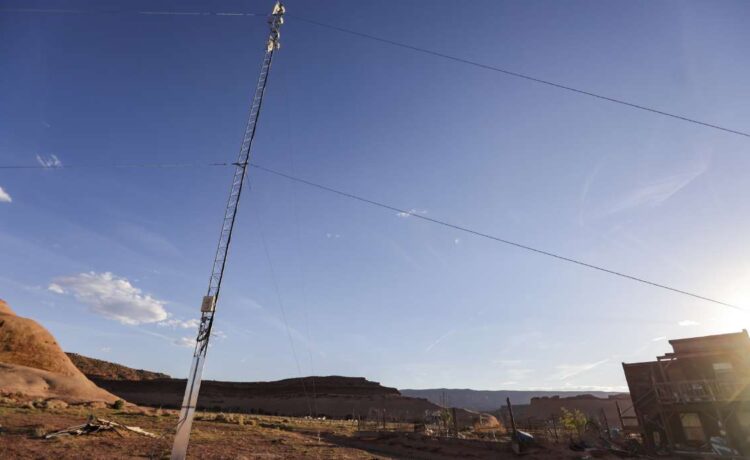SALT LAKE CITY — Congress in 2021 passed a $1 trillion infrastructure package that included $14.2 billion in funding for the Affordable Connectivity Program which helped connect millions of Americans to high-speed internet.
Now the program is at risk of losing funding after April unless it receives additional backing from Congress, according to a statement from the White House.
The program provides eligible households with a monthly discount of up to $30 per month — including up to $75 per month for households on qualifying tribal lands — and a one-time, $100 discount toward the purchase of a laptop, desktop computer or tablet.
Approximately 19 million Americans (6% of the population) lack access to fixed broadband service at threshold speeds, according to a report from the Federal Communications Commission. In rural areas, nearly one-fourth of the population (14.5 million people) lacks access.
In tribal areas, the issue of the digital divide is even worse, as nearly a third of the population lacks access.
And the Beehive State is certainly no exception.
In Utah, 75,088 households are benefiting from the Affordable Connectivity Program and Utah has received over $40 million in funding from the program. This has led to Utahns saving around $2.2 million every month on internet bills.
In total, over 23 million Americans have utilized the program to access the internet and cut down on monthly internet bills.
“Since October, President (Joe) Biden has been calling on Congress to pass legislation that would extend this benefit through 2024. Democratic members of Congress have joined him in this effort. The president also included funding for this essential program in his 2025 budget request,” said a press release from the White House.
“The Biden-Harris administration is once again calling on congressional Republicans to join their Democratic colleagues and extend funding for the Affordable Connectivity Program, so millions of their own constituents don’t lose access to affordable, high-speed internet next month. Without action, families may lose access to education, health care, job opportunities and more.”














